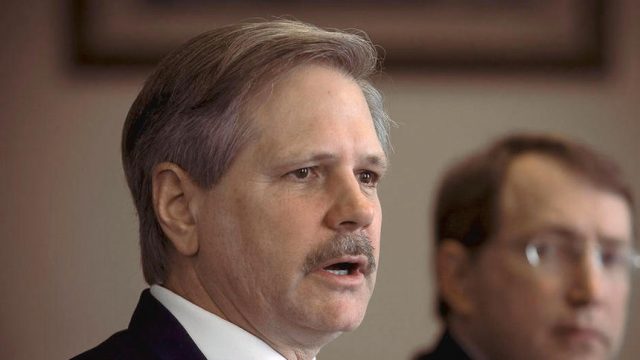Audio: Senator John Hoeven Says Congress Didn’t Do Anything to Change Your Internet Privacy

Go just about anywhere on the internet lately and you’ll learn that Congress approved legislation which will let our ISP’s sell data pertaining to our use of the internet, and that Trump’s about to sign the bill.
Yesterday I spoke with Congressman Kevin Cramer about the legislation, which he voted for, on my radio show. “This will ultimately enhance your privacy,” he told me, arguing that it will allow the FCC and the FTC (which had been handling internet privacy regulations previously) to “harmonize” their rules.
Today I had on Senator John Hoeven, who also voted for the legislation, and asked him some of the same questions. His answers were pretty much in line with Cramer’s, but he added a new wrinkle.
“There was no privacy,” Hoeven told me, saying the rule put in place by the FCC under the Obama administration had never actually gone into effect.
[mks_pullquote align=”right” width=”300″ size=”24″ bg_color=”#ffffff” txt_color=”#000000″]”The same privacy protections that applied in the past will apply going forward,” he said.[/mks_pullquote]
Which means that the legislation Congress has passed really doesn’t change any thing.
“The same privacy protections that applied in the past will apply going forward,” he said.
That jibes with what Phil Kerpen writes in this piece: “Under the proposed FCC regulations, ISPs with limited market share and limited ability to collect user information would be subject to heavy-handed regulation effectively prohibiting running ads without a prior opt-in, while edge providers that have dominant market share and vast databases of user information are exempt.”
“The FCC claim that ISPs are uniquely situated to collect and use user information reflects a basic misunderstanding of how the Internet works,” he continues. “The Institute for Information Security & Privacy at Georgia Tech concluded that ISPs are highly limited in their ability to collect user information because the average Internet user has more than six different devices, encryption is pervasive and employed by all 10 of the largest websites and 42 of the top 50, and users increasingly decline to use DNS services offered by their ISPs.”
Encryption is a growing part of the web. This blog is encrypted, for instance, and many internet interests (including companies like Google) are pushing to have all websites use encryption.
I’m beginning to think all this outrage about internet privacy was based on a fundamental misunderstanding of policy.
Here’s the full audio of my interview with Hoeven:
[fcc_jw_podcast key=”VltTlS51″ player-image=”139345″]




